
Clinical
Latest News


What We’re Reading: ACA Perception; FDA Blood Sugar Warning; AI and Physician Burnout
Latest Videos

CME Content
More News

Numerous strategies were proposed, including an emphasis on community-based interventions that can reduce psychological stressors associated with clinical settings.
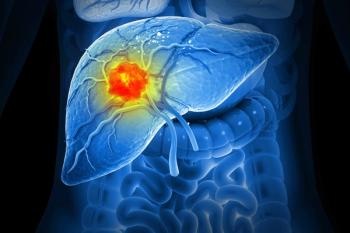
Patients with early-stage hepatocellular carcinoma (HCC) and those with advanced-stage disease exhibited distinct gut microbiota diversity and alterations, with future studies warranted to investigate the mechanisms underlying the interactions between gut microbiota and HCC progression.

The amount of in-network care claims jumped significantly after surprise billing protections took effect; experts say the US is in the midst of the “fourth wave” of the opioid epidemic; the prevalence of long COVID symptoms 30 and 90 days post infection was 43% to 58% lower among adults who were fully vaccinated before infection.

Increased daily step count was linked to reduced risks of overall heart failure (HF) and HF with preserved or reduced ejection fraction.
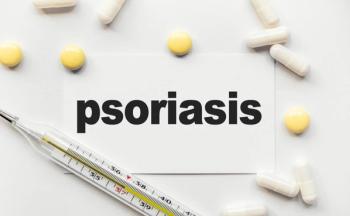
Researchers suggest an alternative method to align drug prices with clinical benefits for patients with psoriasis.
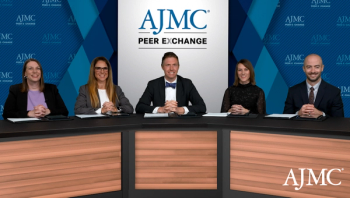
Medical experts provide their final thoughts regarding key treatment considerations for CLL and SLL.

The panelists provide perspectives on critical aspects of the CLL and SLL treatment landscape.

Eric D. Donnenfeld, MD; underscores the significance of an FDA approved treatment for Demodex blepharitis as well as past alternative treatments.

A new study has found that HLX01 (HanliKang), a rituximab biosimilar, had comparable overall survival and progression-free survival rates to the reference product (Rituxan) in patients with diffuse large B-cell lymphoma (DLBCL).

Patients with chronic obstructive pulmonary disease (COPD) on triple therapy face an increased cardiovascular risk.

Findings reveal an increased risk of psoriatic arthritis (PsA) among female patients with severe skin psoriasis who have nail involvement and require oral systemic therapy for their condition.

No difference in overall survival was observed between patients of different races who had chronic lymphocytic leukemia/small lymphocytic lymphoma (CLL/SLL) and received cancer care or had access to a hematologist/oncologist.

The application is based on results of the phase 3 TROPION-Lung01 trial of datopotamab deruxtecan in nonsquamous non–small cell lung cancer (NSCLC), first presented at the 2023 European Society for Medical Oncology Congress.

Despite socioeconomic and biological differences that contribute to disparities between Black men and White men with prostate cancer, improved access has been shown to reduce the gaps, explained Jun Gong, MD, of Cedars Sinai.

Researchers said these findings confirm that zilebesiran can significantly reduce serum angiotensinogen levels, leading to sustained reductions in blood pressure over a 24-hour period, even 6 months post-treatment, though more research is needed for longer-term use.

Hospitalized Children With Diabetes May Be Able to Continue Safe Use of Home Pumps, Suggest Findings
Using home insulin pumps when hospitalized was relatively safe compared with hospital-managed pumps and insulin injections among more than 2700 children admitted to a single hospital center.

The retrospective study found patients on Bruton’s tyrosine kinase inhibitors are similar to the general population in the sense that it usually takes at least 2 anti-hypertensive drugs to control blood pressure.

Medicare beneficiaries are beginning to see the first savings from the Inflation Reduction Act; abortion pills prescribed to patients via telehealth and the mail are safe; nearly half of health care workers have witnessed racism or discrimination in their workplace.
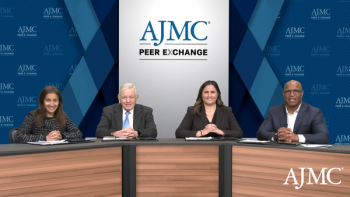
Experts explore treatment considerations when treating patients with metastatic breast cancer with elacestrant, including dosing, patient selection, adherence, and treatment duration. Participants also discuss dose modifications, adherence concerns, and how they determine treatment failure.
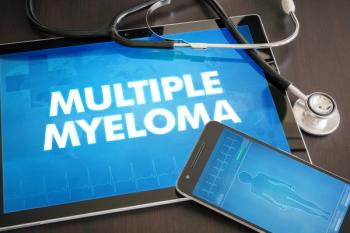
The combination of daratumumab and immumodulatory therapy was evaluated among patients with relapsed/refractory multiple myeloma (RRMM) who have failed prior treatment with immunomodulatory agents, proteasome inhibitors, and daratumumab as monotherapy or in combination.

Children treated with dupilumab showed improved lung function compared with placebo group, according to one study.

Coverage from the session, "Which Comes First? Bispecifics, CAR T-Cell Therapy, and Cost Consideration in Sequencing,” at Patient-Centered Oncology Care 2023.

Patients with chronic obstructive pulmonary disease (COPD) and reduced physical activity showed a higher risk of emergency department visits or hospitalizations in a recent study.

Details from the final interim data analysis of the ADAPT+ study confirm previous findings seen with efgartigimod (Vyvgart) in generalized myasthenia gravis (gMG), the rare neuromuscular autoimmune disease.

The Federal Trade Commission and HHS will examine generic drug shortage causes; the Biden administration recently dedicated an additional $515 million to a major initiative to study long COVID; cybersecurity experts warn that US hospitals are at risk for attacks and the government is doing little to prevent such breaches.

















